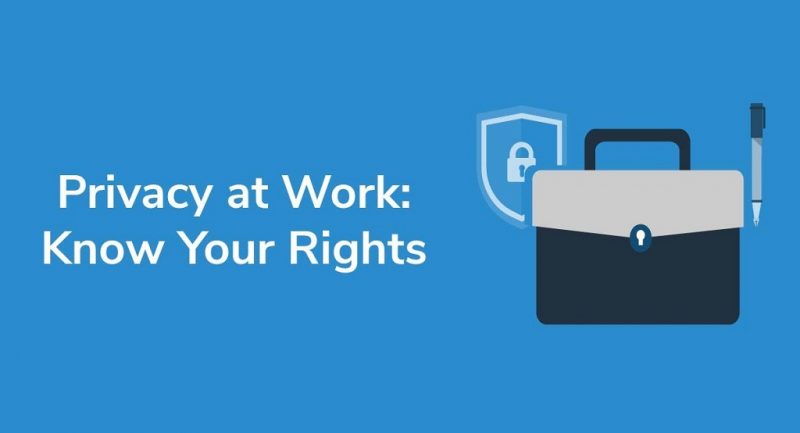Employee monitoring is slowly becoming a common trend in most workplaces. However, before making use of this technology, bosses should understand some laws surrounding employee privacy. While employers are allowed to implement employee monitoring technology when tracking their employee’s work activities and location, they should adhere to the Electronics Communications Privacy Act, which is the federal law regulating this activity.
Outlined below is a guide for employers looking to implement monitoring solutions while avoiding legal issues.
What are Employee Privacy Rights?
As the name suggests, employee privacy rights are the regulations limiting how employers can search employees’ possessions, actions, speech, and personal lives, especially but not exclusive to the workplace. The nature of these protections has recently become a major concern, especially as the internet and the use of social media become popular.
While most of these communication channels seem private, there is little privacy and can easily be exploited. Employers can monitor any information appearing on company computers, including searched sites and social media platforms. However, employment law features employer obligations and employee rights, regardless if you are a job applicant, current, or former employee.
Email and Internet Privacy at Work
Private employers can monitor the computer and phone use of their employees. However, there should be well-documented policies with written employee acknowledgment before the business starts monitoring. For instance, if the employer intends to monitor their employees’ email communications and computer usage, the policy should clearly state that employees shouldn’t expect any form of privacy, especially when using company resources.
Most small businesses that don’t have sufficient resources or time to monitor all their employees often block access to irrelevant websites or use tracking software that alerts them in case of such violations. Established companies may use programs that enable them to monitor their employees’ screens, hard drive content, and computer terminals in real-time.
Phone Privacy at Work
Employers are allowed to monitor the phone communications of their employees, but with some restrictions. The Electronic Communications Privacy Act forbids employers from monitoring their employees’ private calls and messages, even if they were sent, made, or received within the employers’ property.
The federal law also requires employers to inform their employees that all their calls and messages are being monitored.
Video Surveillance
Video surveillance is probably the most common monitoring method used by employers. Security cameras placed in the building not only enhance employee safety but also monitor their work activities. As per the law, recordings from these cameras should not include audio, as it goes against the Federal Wiretap laws. Surveillance cameras should also be used legitimately and restricted to areas where there are ongoing business activities.
Therefore, employers cannot install these cameras in locker rooms, restrooms, bathrooms, and other areas where employees reasonably expect privacy.
Drug Testing
Drug tests are a common practice for most companies looking to hire new employees. Some private companies also conduct regular drug tests in a bid to monitor their employees’ drug and alcohol use. While they have a right to subject their employees to these tests, they shouldn’t release the results publicly. Some states also limit the employer’s power to enforce continuous drug screening.
Exceptions that necessitate mandatory drug tests include;
- Jobs with significant health and safety risks
- Injured employees from job-related accidents suspected to be under the influence
- Employees at work with signs of intoxication, such as bloodshot eyes or slurred speech
Unfortunately, policies regarding how, when, and why these tests should be done aren’t covered by law enforcement. Companies should individually state their drug policies to avoid legal suits.
Social Media Monitoring Rights
Most companies have policies and regulations that restrict what employees can post about their employers on social media platforms. In some states, there are laws barring employers from punishing or terminating employee contracts based on social media posts made outside company time unless the post inflicts some damages to the company.
The National Labor Relations Board has made several rulings guarding social media policies made by employers. They include;
- Business policies shouldn’t bar any activity protected by federal labor laws, such as discussing workplace conditions and wages.
- Social media comments made by employees on social platforms are unprotected
- Most states have laws protecting job seekers from companies that require them to provide username and password to their social media accounts
Other important employee privacy laws include job references, GPS tracking, and personal searches.
Conclusion
Even though employers have few privacy rights at work, they are still entitled to some workplace privacy. Apart from federal laws protecting employee rights, employers should adhere to other state-specific employee privacy rights. Generally, employers should be transparent in enforcing their monitoring practices to make their employees secure and avoid legal backlash. If you think your employer has infringed some of your privacy rights, seek legal guidance from employment lawyers.
